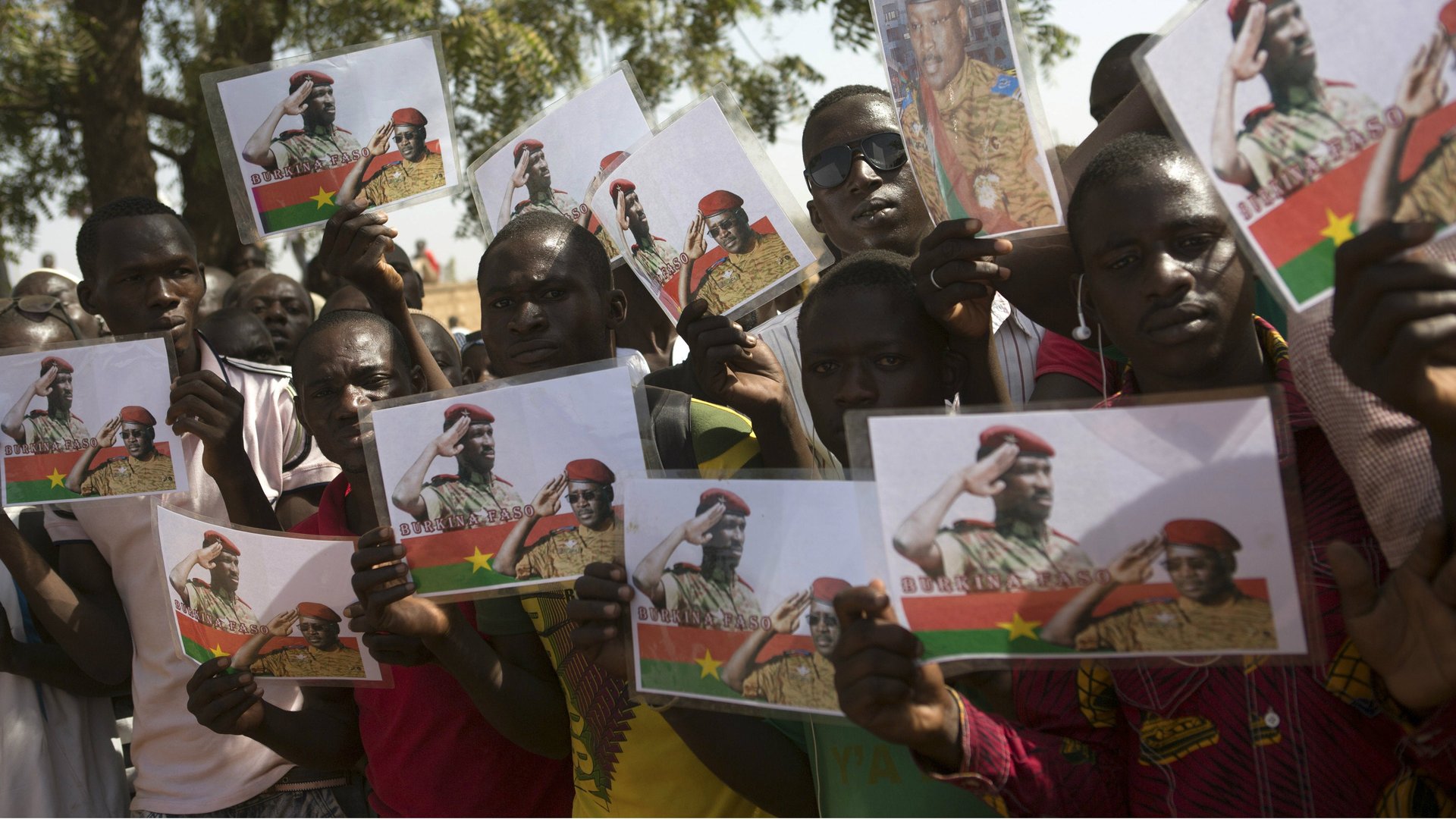Burkina Faso wants France to declassify military files on Thomas Sankara’s assassination
It has been 29 years since Thomas Sankara, Burkina Faso’s legendary leader, died. But questions about his death have largely gone unanswered.


It has been 29 years since Thomas Sankara, Burkina Faso’s legendary leader, died. But questions about his death have largely gone unanswered.
Many believe that the inspirational leader was assassinated in a coup led by his then minister of defense and long-time deputy, Blaise Compaore, who followed him as president. But exactly how remains unclear. An investigating judge in Burkina Faso has asked France to declassify military files on Sankara’s killing to determine whether France “played a role” in the assassination. The request also requires interviewing some French officials who were involved in the country’s affairs at the time.
The move is part of a probe into Sankara’s death which began last year, following the ouster of president Compaore from office in October 2014. Campaore had ruled for 27 years following Sankara’s death.
Now exiled in Ivory Coast, Campaore is the subject of an international warrant for his arrest by the government. Campaore has denied the charges, but has refused to return to Burkina Faso to stand trial.
As part of the government probe, the remains of Sankara and his aides, also killed in the coup, have been exhumed to determine the cause of death. The Sankara family had been issued a death certificate by the Campaore government stating the leader died of natural causes. Initial tests of the remains could not determine the identity of the bodies; DNA was not “detectable.”
The probe was initiated “in the name of national reconciliation,” according to Michel Kafando, interim president of Burkina Faso last year. Sankara’s legacy and influence still looms in–and beyond–Burkina Faso. Known for his austere lifestyle and prudence with scarce government resources, Sankara led bold reforms during his four years in office, including changing the name from Upper Volta to Burkina Faso. He is considered one of Africa’s greatest leaders.